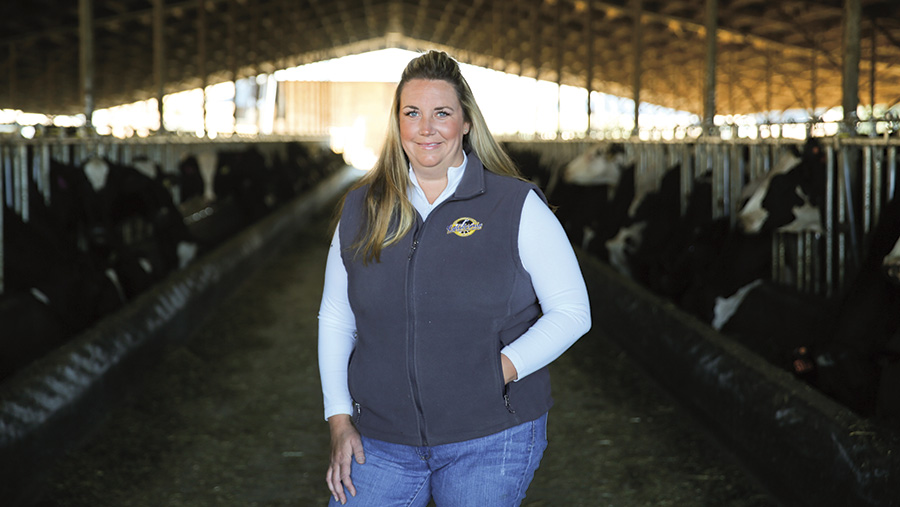Farmer Focus: Herd genomics worth thousands in fat alone
 Jessica McIsaac © Brianna Frey
Jessica McIsaac © Brianna Frey I spent the past weekend preparing cows for our state Holstein show for our farm exhibit. While doing this I was thinking about how far we have come with genetics and the effect it has had on our herd.
Even though we are an organic herd, we have seen the positive effect of sire selection and a knowledge of genetics.
See also: Read more from our Livestock Farmer Focus writers
Recently we had our creamery base instated, which gives us a cap on the amount of milk we are allowed to sell.
We were producing nearly 1,818 litres more than we were allowed to sell daily, so we started analysing our genetics to make an informed decision.
For more than two years we have been genomic testing all of our females, so this data gave me a good starting place for deciding which cows to sell.
Using the genomic data, I was able to compare which cows will have the best effect over a longer period of time. With the help of Holstein’s Enlight programme, I was quickly and accurately able to sift through the data to be better informed on making culling decisions.
I was able to sell 34 milking cows and get our bulk tank down fast with the information. We use genomics every day to improve our herd genetics by using a cow’s genomic information in a matched sire mating. Select Sires obtains our genomic information and pairs our females up with the best sires genetically.
Genetics affect the bulk tank and, ultimately, our paycheck. Our creamery paycheck correlates to milk solids and fats.
Our creameries pool average is 12.3% of these components in the milk. Our farm averages 12.6%.
Over years of genetically selecting higher-testing bulls, we have achieved a positive financial effect on our bottom line. The simple difference of 0.3% more fat and protein results in a US$60,000 (£48,000) higher paycheck.
For years we thought sire selection and genetics were used to breed better-looking animals, but today years of progress is paying off. We are seeing significant herd changes from genetic advancements.
Jessica McIsaac milks 350 pedigree Holsteins in Petaluma, California, with her husband Neil. They sell organic milk and also have 6,000 laying hens.
